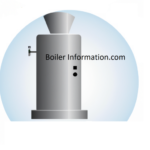Industrial boilers are used in many industrial and commercial settings for a variety of applications, including heating, power generation, and manufacturing processes. As with any industrial equipment, there are regulations and compliance requirements that must be met to ensure the safe operation of industrial boilers.
The primary regulatory body for industrial boilers is the Environmental Protection Agency (EPA). The EPA has established standards for air emissions from boilers, as well as regulations for water quality and wastewater discharge. Additionally, the EPA has established rules regarding the storage and handling of hazardous materials used in boiler operations.
In addition to federal regulations, state and local governments may also have specific requirements that must be met. These may include restrictions on the type of fuel used in the boiler, installation requirements, and safety protocols. It is important to check with local authorities to ensure that all applicable regulations are being met.
Industrial facilities must also comply with Occupational Safety and Health Administration (OSHA) standards. These include safety protocols for personnel working around boilers, as well as ventilation requirements to reduce the risk of carbon monoxide poisoning. Additionally, OSHA requires employers to provide appropriate training for personnel working with or around boilers.
Finally, industrial facilities must comply with fire codes and other safety regulations established by local fire departments. These may include requirements for fire extinguishers, sprinkler systems, and other safety measures designed to protect personnel and property from potential fires caused by malfunctioning boilers.
By following all applicable regulations and compliance requirements, industrial facilities can ensure the safe operation of their boilers. This helps protect personnel and property from potential hazards while also protecting the environment from unnecessary pollution.
